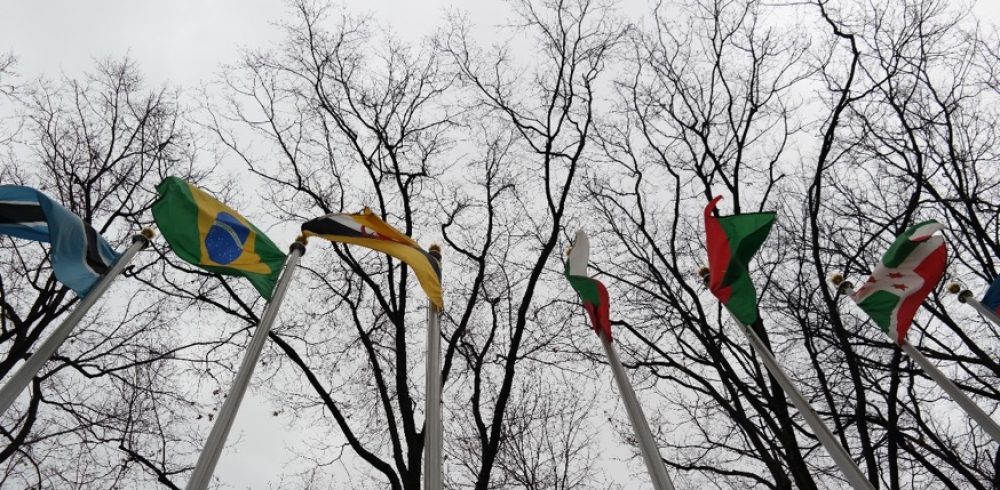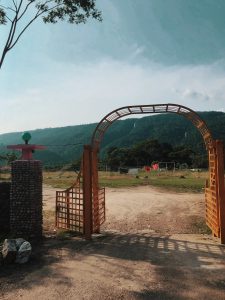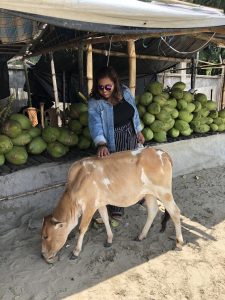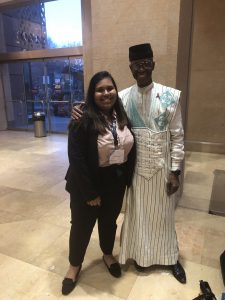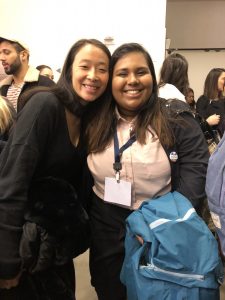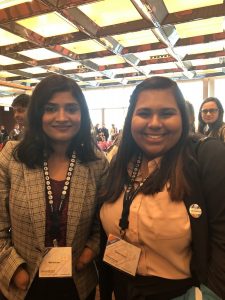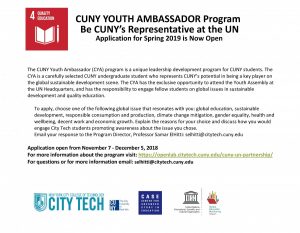This past month, I was fortunate enough to be able to attend the 23rd United Nations Winter Youth Assembly. Over three days, I was able to learn so much about the role of the youth in making global goals, specifically the Sustainable Development Goals, happen.
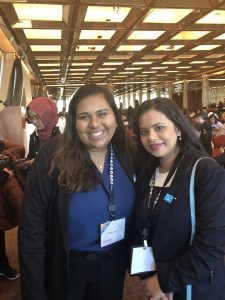
Nishat Mirza- Youth Representative of the Voices of Bangla to the U.N. Department of Global Communications
During the first day, there was the Opening Ceremony. To be completely honest, I was nervous for this event. In fact, I got ready hours before I had to be and pep talks from several people to calm me down. Soon, this anxiety turned into excitement and I couldn’t stop thinking about how exhilarated I was during the train ride. While heading to the ceremony, I got lost and asked a group of people I saw who had badges on for the ceremony. It turns out they were delegates from a high school in Michigan who were also lost. As we headed to the event together, we got to know each other. Unfortunately for the actual event, I was unable to sit near them, because I was told to sit in a specific area as I was a guest. I felt slightly awkward and uncomfortable because everyone around me came in a group with people they knew. Truthfully, I also felt like I didn’t belong there because I felt as though I wasn’t a leader. People around me were discussing their various organizations and the ways they made an impact. However, as the ceremony went on, I was soon able to learn how mistaken I was. The various speakers, including H.E. Ms. Simona Mirela Miculescu and U.N. Secretary-General Satya Tripathi, were able to teach me about the role of the youth as previous generations have failed to make a difference. Mr. Tripathi said, during his ceremony, “…we have till 2028 to turn around. We don’t even realize what’s happening. The Antarctic ice is melting five times faster than in the ‘80s.” As Mr. Tripathi discussed the urgent need to make a difference for global warming, it made me feel empowered to make a change. I felt as though even though I didn’t think I was a leader, being at the conference made me one and working towards the SDGs would allow me to develop more as one. On the way home, I couldn’t stop thinking about how excited I was for the next two days.
On day two, I was able to thankfully get my official guest badge and attend different panels. I decided from early on that I wanted to attend panels attending towards different SDGs, in order to learn more about these issues and the role of the youth towards combatting it. I, unfortunately, was only able to attend three of the panels, as I felt burnt out towards the end of the third panel. Regardless, I believe that these panels were worthwhile.
One of the panels that stuck out the most to me was the panel regarding gender inequality, which featured some of the most inspiring women I’ve ever met. One of them was Nadya Okamato, who started PERIOD., a non-profit campaign at the age of 16 when her family was homeless and staying with friends. In a bus stop on her way to school, she learned about how homeless women couldn’t afford menstrual products. She realized the unfair standards for women, as menstrual products are taxed as a luxury item whereas products for male enhancement are much more accessible. Now, she is one of the founders of one of the largest youth powered non-profit organizations that strive to work towards gender inequality by providing menstrual products, repealing the tax on these products, and working against the taboo of talking about menstruation. Prior to hearing Nadya discuss her story, I didn’t realize that the disparity that women face for menstruation products. After hearing her talk, I was able to realize why this is such an important issue. I was also extremely inspired by how powerful she was at the age of 16. Often, the youth don’t realize just how important we can be. We don’t understand how powerful we can be, whether it’s creating a non-profit organization against a very serious issue, or addressing the issues that we see through protests. Listening to the panels that day made me realize how much of a leader I am, and how much power I have within the CUNY community. I may not be creating a non-profit, but by striving towards teaching the youth within the CUNY community about a sustainable lifestyle, I am, in my own way, working towards global development.
The third day consisted of more panels, but they were mainly about steps that the youth can take towards making a change. These panels talked more about why Generation Z is so important, including the fact that we are the most educated generation. One of the panels that I went to had youth advocates from the U.N. Department of Global Communications. The panelists were all around my age, and they discussed how they were able to join the U.N. Steering Committee. At the end of the panel, the panelists put up a QR code for a WhatsApp group, so that all of the delegates and youth advocates could work together to share ideas to make a change. I am currently in this group of around 150 people, and it’s very exciting to learn about the different ways that the youth are making a difference.
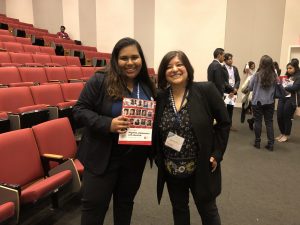
Priyadarshani Joshi, a researcher for the Global Education Monitoring (GEM) Report
Another panel that I attended was from GEM Report Researcher Priyadarshani Joshi. She discussed the 2019 GEM Report, which focused on the education of migrants and refugees. This topic was extremely relevant, as there are numerous countries in the world where this is extremely relevant, such as Venezuela, Myanmar, and Kurdistan. Learning about how the quality of education for migrants and refugees needs to improve was extremely crucial, but hearing other delegates in the crowd talk was also a significant moment One of the delegates was a medical student from Venezuela, who was trying to implement a clean water project within Caracas during the humanitarian crisis.
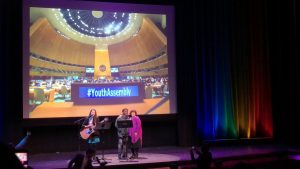
Korede Bello, a Nigerian singer and delegate, singing with H.E. Ms. Simona Mirela Miculescu and Daniella Cardillo, a singer/songwriter
The Closing Ceremony soon came, and I was able to learn about significant delegates who were working hard towards the SDGs. The topic of the education of refugees was also essential as it related back to one of the speeches from one of the Outstanding Delegates during the Closing Ceremony. The speech was from a Kurdish refugee in New Zealand who saw the poor quality of education of refugees and wanted to work to change it. As a result, she created an organization to improve education for refugees. The ceremony also consisted of a speech from Priya Joshi about how we were working towards education the SDGS, as well as a speech from the executive director of the Friendship Ambassadors Foundation about how we should start working towards our goals. The ceremony ended with a performance from H.E. Ms. Simona Mirela Miculescu, who invited delegate Korede Bello to the stage because he was a Nigerian singer. It was hilarious to see them sing together and forget the words to the song in the middle, but I thought it was very wholesome and heartwarming to see them singing.
Now that the conference is over, I keep wishing I could go back to that weekend. Being surrounded by so many leaders from different communities made me realize how much of a difference I could make, and how lucky I was to even be there. People flew from all around the world just to attend the conference, whereas I only had a train ride of an hour (which I still considered a long commute). I feel incredibly blessed to even have the opportunity to learn more about being a leader as a member of the youth, and I’m excited to see where my newly gained knowledge will take me.
